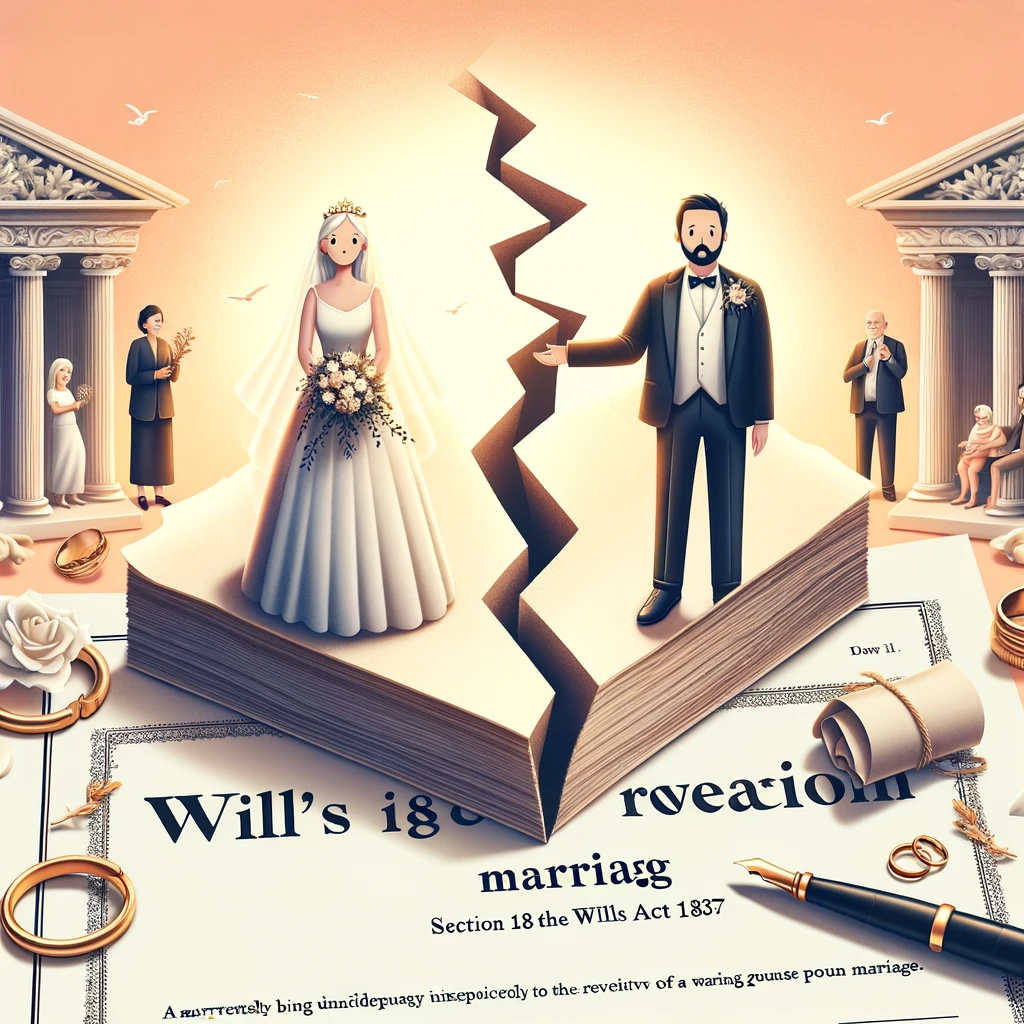Marriage Revokes Your Will: The Hidden Perils of Marriage Under Wills Act 1837
Marriage is a milestone that brings many changes, but one less known and often overlooked change is its impact on your will. Under Section 18 of the Wills Act 1837 in the UK, marriage automatically revokes any existing will, unless it explicitly states it’s made in contemplation of that specific marriage. This legal nuance can have significant implications on estate planning and inheritance.
The Basics of Section 18: Section 18 states that any will made before marriage becomes null and void once the individual gets married. This rule was established with the assumption that a person’s marital status significantly changes their financial and personal circumstances and, therefore, their testamentary wishes.
Why is this Important? Many people create wills at various stages of their lives, reflecting their circumstances and wishes at that time. However, without updating or rewriting their will in contemplation of marriage, their estate could be distributed under the rules of intestacy, potentially in a manner they did not intend.
The Implications of a Revoked Will:
- Unexpected Inheritance Outcomes: Without a valid will, your estate may not be distributed as you would have wished.
- Intestacy Rules Apply: This means that your estate could be divided according to standard legal formulas, which might not reflect your personal relationships or intentions.
- Potential Family Disputes: The lack of a valid will can lead to disputes among family members and loved ones.
Exceptions – Wills Made in Contemplation of Marriage: A will can remain valid after marriage if it explicitly states that it’s made in contemplation of a specific marriage. This foresight can ensure your estate is managed according to your wishes, even after a change in marital status.
The Need for Awareness and Action:
- Review and Update Your Will: It’s crucial to review and potentially update your will before or after getting married.
- Professional Advice: Consulting with a legal professional can provide clarity and ensure your will is compliant and reflects your current circumstances and wishes.
The automatic revocation of wills upon marriage is a legal aspect that many might not be aware of, but it’s crucial in estate planning. Understanding and acting on this knowledge can ensure that your assets are distributed according to your true wishes, regardless of life’s changes. Regularly reviewing and updating your will, especially after significant life events like marriage, is key to effective estate management.














Post Comment